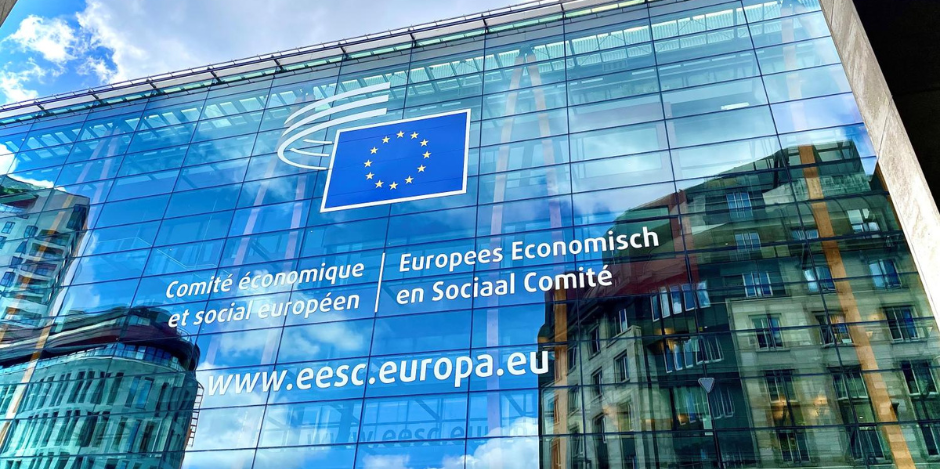CRTA’s address at the session of the European Economic and Social Council in Brussels
 European Economic and Social Council in Brussels
European Economic and Social Council in Brussels
Read the full speech of Rasa Nedeljkov, Crta’s Program Director and Chief of the Crta’s Election Observation Mission at the session of the European Economic and Social Council in Brussels held on 5 April 2024.
Months have passed since the December Elections, and a new election cycle is in sight, but the government keeps denying a single problem with electoral conditions. In synchrony, the prosecution denies that a single criminal deed was committed, thereby continuing to promote impunity for manipulations and fraud.
It seems that the government now expands its hand toward dialogue; the government today acts as determined to fulfill ODIHR recommendations. But how does it look in practice – after months of grave attacks against anyone who dared to challenge the legality of election conduct and Government’s views of the most recent elections, either from the ranks of the opposition, election observers, activists or media – two days before calling new elections in Belgrade, the Speaker organizes a snap meeting of all parliamentary groups. Recently, the Government also swiftly revived its Working Group – away from the public eye. Both of these events can not compensate years in which elections, pluralism, social and political dialogue were genuinely cannibalized by the system through its institutional channels, leading to the ultimate goal of erasing the line between the party, the state, and the President.
History is repeating itself. All “democratic mechanisms” in place today are well-known fig leaves, hiding the intrinsic rejection of dialogue and change in favor of democracy.
I would like to stress that ODIHR assesed two-thirds of recommendations directed to Serbia since 2012. The result is that only five priority recommendations have been completely fullfilled until today. At the same time, all priority recommendations stressed in the latest report have been repeated, mostly, since 2012 – from decisive actions to stop pressures against voters, Voter Registry audit, increasing its transparency and trust, to severe problems with the media regulation.
ODIHR’s final report writes: “The frequency of early elections has further eroded public confidence in the functioning of democratic institutions, and together with the lack of political will, left needed reforms unaddressed.”
This is a stark reminder that all elections, but one, were extraordinary over the past decade. Only one Parliament fulfilled a 4-year term. Our society lost at least two and a half years in an institutional vacuum caused by a number of early elections called without policy or institutional justifications. The same happened with the early 2023 December elections, including in 66 local municipalities.
Our decision-makers set the scene to manipulate election results through unlawful and illegitimate abuse of their institutional power.
The United Nations Human Rights Committee has recently issued a scathing critique of Serbia’s authorities, highlighting our country’s failure to provide sufficient information about the prosecution and Constitutional Court’s actions regarding the documented criminal offenses related to last year’s elections. The Committee asserts that this is a serious breach of Serbia’s obligations.
This is another international reaction from the highest-level that we fear will be left unaddressed based on experience of manipulating the findings and recommendations of all key Serbia’s partners – from the European Union, the Council of Europe to ODIHR.
Essential preconditions need to be met first before we jump to addressing conditions for viable elections and democracy. These preconditions are the substantial dialogue that demonstrates a true political will, accepts constructive critics and ceases with smear campaigns through state institutions and media against every democracy actors. Furthermore, authorities have to urgently investigate all allegations of electoral irregularities and bring to justice perpetrators, thus demonstrating their will to cease with the culture of impunity. The same goes with preventing voter intimidation and enabling the establishment of a clear boundary between the roles of the state and the ruling party in elections.
Finally, the free formation of voters’ will, as the backbone of free elections, largely rests on truthful, complete, and timely information and the promotion of ideas and pluralism. Opening public broadcasters RTS and RTV to different political options and significantly greater dedication of these outlets to education of citizens is the first step in establishing political pluralism in society.
As we stand at the crossroads of change, I call on our government with a message of optimism tempered with concern. Let this be the moment we choose dialogue over denial, action over evasion. It is imperative that we end the cycles of spins and manipulations, pressures on citizens, civil society, media, and political actors. We must embark on a path of open, inclusive dialogue with meaningful steps to address our deep societal and political challenges. Citizens are entitled to demand at least the minimal decency in our elections, as a first step.








